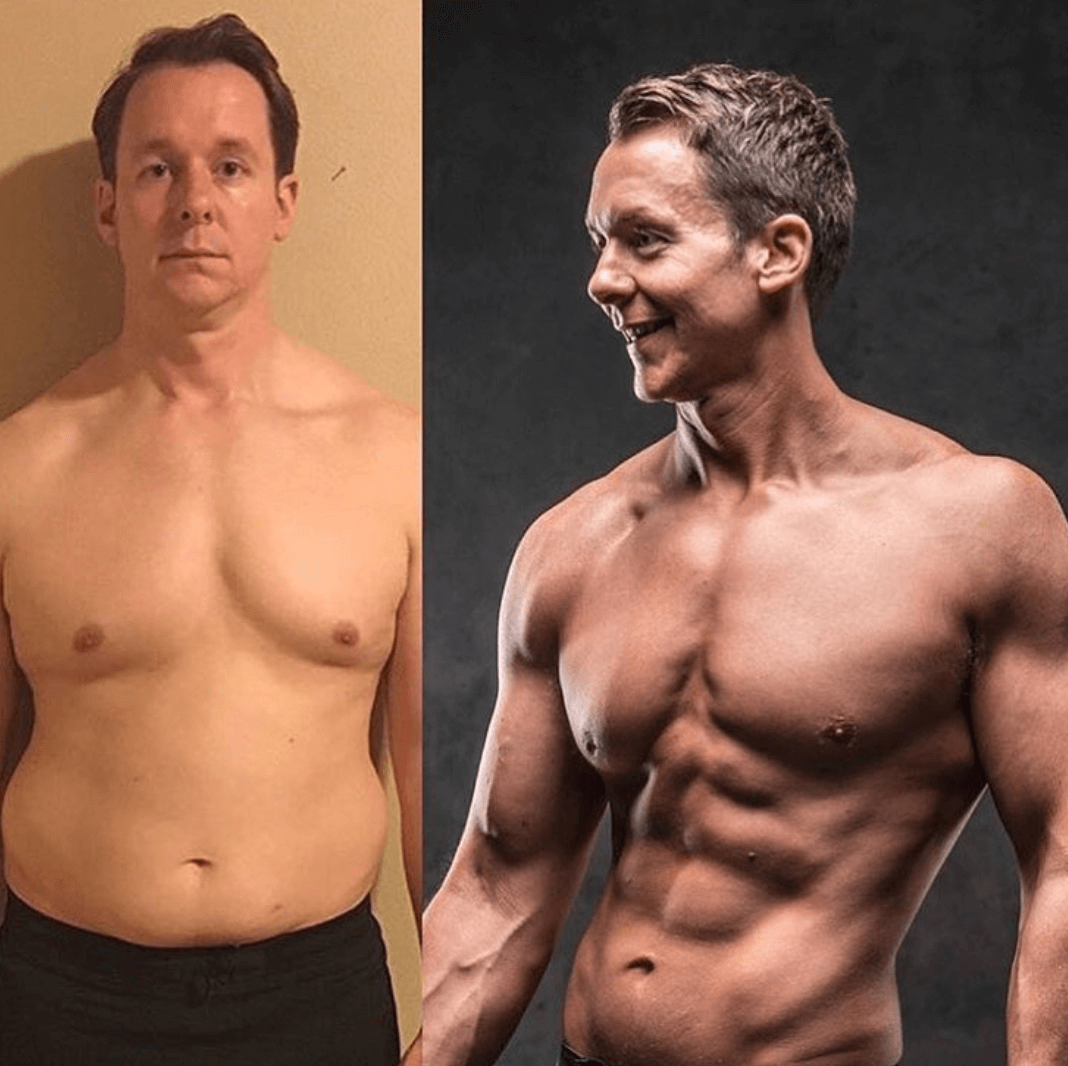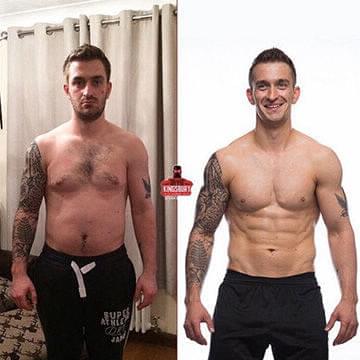I have had this question come in a lot lately. It is the easiest to answer without knowing a lot more about the individual, their goals and also their expectations.
We live in an age where things are expected instantly. If someone wants something they can just get it.
Fitness isn’t one of these things however. You have to work at it, day in day out. If you find yourself being frustrated with you results the first thing I would suggest you do is ask yourself this question “have you paid your dues”
If the answer is yes then you know you have been consistent with your food, hitting your exact calories and you have also been going hard in the gym. Not for days or weeks but for months and years. The rest of the article will now look at things you need to consider and implement to ensure your hard work isn’t going to waste if you have been working hard and not seeing results.

If you are answered no then you can still use the information below but your priority needs to be hard work and consistency first and foremost.
Your results are slow compared to what?
If you are comparing yourself to Instagram fitness models then stop. If you are comparing yourself to a bodybuilder you might need to rethink your time frame.
When you see people in crazy shape I can guarantee they have many many years of training and goal focussed nutrition. Even if they take some time out and come back they still have a physical and mental base that see their results accelerate.
I am not saying don’t have big goals. I believe in big goals wholeheartedly. I am saying you need to give these people the respect they deserve and the hard work and sacrifice required for serious results. The next step is for you implement this mindset and realise this isn’t a quick fix but a marathon of a journey.
Genetics
Genetics ultimately will determine your potential for results. Evidence suggests that the gainz you see from weight training are highly reliant on the efficacy of satellite cell-mediated myonuclear addition. Essentially your muscles won’t get larger without the satellite cells surrounding your muscle fibers donating their nuclei to your muscles so they can produce more genetic material to signal the cells to grow.
In a study by Petrella, first-rate responders averaged 21 satellite cells per 100 fibers at baseline, which rose to 30 satellite cells per 100 fibers by week sixteen of training. This was accompanied by a 54% increase in mean fiber area. The non-responders averaged 10 satellite cells per 100 myofibers at baseline, which did not change post-training, nor did their hypertrophy.
You will see here that genetics do make a difference. But even with less than optimum genetics you can still see great results with good nutrition and smart training.
Petrella JK, Kim JS, Mayhew DL, Cross JM, Bamman MM. Potent myofiber hypertrophy during resistance training in humans is associated with satellite cell-mediated myonuclear addition: a cluster analysis. J Appl Physiol 104: 1736–1742, 2008.
Are you going all in?
In order you make progress you need to be in a big calories surplus. You need to know your TDEE and you need to punching 20-25% above it day in day out. Yes, this mean sacrificing abs for size. Yes, this means losing those cuts. But these are part of the process to ad mass. These are temporary side effects of adding size, when you lean down again after you won’t regret it!
Have you been out of shape before?
If you have been overweight before this will have a knock-on effect on your progress. The hormonal effects of being overweight are often neglected but they can really influence your body in more ways than you might expect.
Leptin
leptin is produced by fat cells and is secreted into the bloodstream. Leptin reduces appetite by acting on specific centres of their brain to reduce their urge to eat. It also appears to control how the body manages its store of body fat.
leptin levels are higher in people who are obese than in people of healthy weight. Even with higher levels of this appetite-reducing hormone, people who are obese are not as sensitive to the effects of leptin and, as a result, tend not to feel full during and after a meal.
Insulin
Insulin is produced by the pancreas, it is important for the regulation of carbohydrates and the metabolism of fat. Insulin stimulates glucose (sugar) uptake from the blood in tissues such as muscles, the liver and fat. This process is important to make sure that energy is available for everyday functioning and to keep normal levels of circulating glucose.
In someone who is obese, insulin signals are sometimes lost and tissues are no longer able to control glucose levels. This can lead to the development of type II diabetes and metabolic syndrome.
Growth hormone
The pituitary gland in our brain produces growth hormone. This influences a person’s height and will build bone and muscle. Growth hormone affects metabolism (This is the rate at that we burn kilojoules for energy). Research has found growth hormone levels are lower in obese people compared to people of normal weight.
Testosterone
Obesity is a major cause of low testosterone levels, Hypogonadism is found in 75% of men considered very obese (BMI >40 kg/m2)
The link between obesity and low testosterone levels is found in men at all ages, even in young men and teenagers
Testosterone concentrations in young pubertal and post-pubertal obese males. Mogri M, Dhindsa S, Quattrin T, et al. Clin Endocrinol (Oxf) 2013;78(4):593-599.
Testosterone and body levels is a hard cycle to break out of. High fat equals low T and low T equals more fat. To break through this you need to focus on getting body fat levels down sufficiently.
Correcting these elements
If you have been overweight before then some of these problems may be ongoing and to maximise your results you will need to working on improving them
Leptin sensitivity – Avoid big insulin spikes. Avoid high sugar content foods. Eat lots of fibre. Improve your sleep. Get in your high intensity training. Reduce stress. Reduce meal frequency. Supplement with taurine or Acetyl L-Carnitine (ALCAR) to help alleviate or prevent leptin resistance.
Insulin – Avoid big insulin spikes. Avoid high sugar content foods. Carb cycle. Do weight training.
Growth hormone – lose weight, get more sleep, strength training, intermittent fasting, avoid simple sugars, supplement with vitamin d, glutamine, gaba, l-leucine, l-orthinine, melatonin etc
Testosterone – Avoid high sugar content foods. Sleep more. Keep body fat levels in check. Consume Plenty of Zinc. Strength Training. Optimize Your Vitamin D Levels. Reduce Stress. Limit or Eliminate Sugar from Your Diet. Eat Healthy Fats. Ultise other supplements such as selenium, d-aspartic acid, l-carnitine, tribulis etc
Now you can implement these elements into your plan it will give your hormones a kick start to help progress.
As you will have seen with all of these points the negative impacts of being overweight are pretty extreme so it should help to keep you on a lean bulk and not a pizza and icecream muscle building plan. If you ever feel like BF levels are creeping up to high (say 20%) then perform a mini cut to get you levels back on track before jumping back on the gain train.
Do you even lift bro?
If you are here on my blog then I know you are lifting but are you really training? Are your sessions intense, are you making progress and doing enough to stimulate muscle development?
Every person reading this (and the guy writing it) can work harder and be more active in tracking what weights they lift and look to improve the way they implement progressive overload.
In order for your body to build muscle you have to create sufficient stimulus. If you need some support with a training plan that will maximise this then let me know.
If you are struggling to find the energy and motivation to push your sessions hard then seek some support. Get a trainer, online coach or training partner to help push you through your sessions. Then is a huge difference between running through the motions and properly getting it done.
Nutrition, are you being true to yourself?
If you are leaving your nutrition to chance you likelihood of success is slim. Get a fitness professional that knows there stuff to create you a food plan and stick to it. At the very lease get someone else to calculate your macros and calories and fill it in daily on myfitnesspal or something similar.
If you have received a food plan or your macros don’t at any point think you know better and mix it up. These will have been created the way they are for a reason and you need to trust in them.
Nutrition is a pretty complicated subject and getting all the numbers right requires some serious expertise. We are all different and our needs are therefore different even if are goals are all the same (Van Dam in Kickboxer?) I would say stop trying to do it all yourself and get an experts guidance, make sure that the “expert” has real world experience and they know their numbers.
Flex your patience
What is this patience muscle and how do I train it?
Like I said in point one you need to be on this journey for quite some time to see serious results. How long will depend on where you are now and where you want to be.
Don’t let the fact it will take time off put you though, the sooner you get started the sooner you will get there.
People in great shape have been at this game for a while. Whilst to be at the top of the game requires the genetic advantage, consistency over time is what ultimately separates those who achieve it and those who do not.
If you want to take on that next step of your fitness journey get yourself on my online training plan today.










